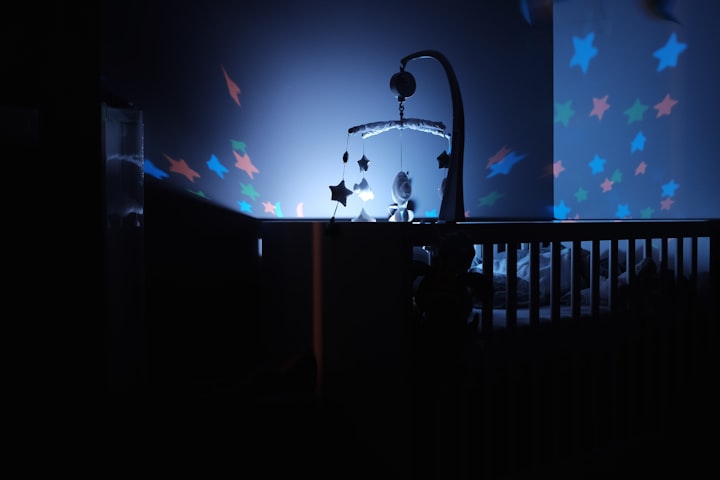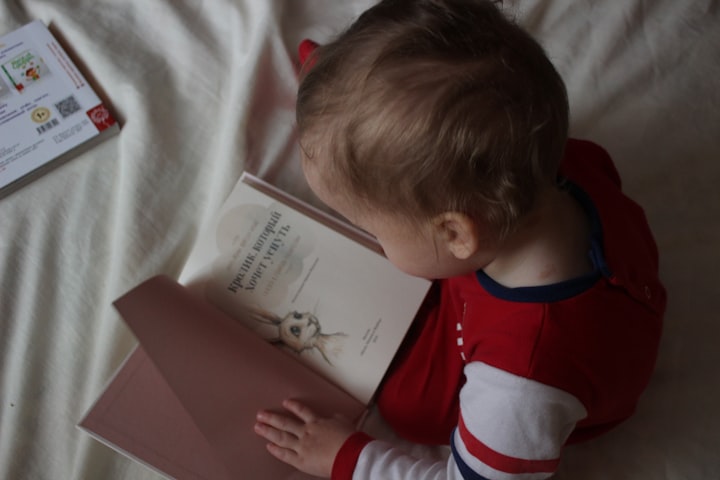
Again, we face a chicken-or-egg question: are these babies unable to sleep like “normal” babies because they are unusually active, or does their sleep problem underlie their “hyperactivity”?
In many cases sleep disruption appears to lead to “hyperactive” behavior patterns, even though no research has directly confirmed this fact.
More and more evidence demonstrates that lack of sleep may bring on behavior that resembles that of a hyperactive child.
From an intuitive perspective we can all recall methods we use to keep ourselves awake when we are tired.
These methods include increasing our activity, fidgeting, fiddling with our hands or our facial muscles, and similar strategies.
This pattern contradicts the expectation that the tired child will relax and slow down.
The clinical literature has documented certain cases in which significant sleep problems have been found to lead to “hyperactive” behavior patterns and later to a wrong diagnosis and treatment.
It is of utmost importance to examine the possibility that the sleep disorder is the source and not the outcome of the “hyperactivity.”
In the event that a sleep disorder exists, it should be treated before treating the disorders that result from it.
In some cases treating the sleep disorder may spare the child from receiving unnecessary medication like Ritalin, which is the most prescribed chemical response to children’s behavioral problems.
An erroneous interpretation of a child’s behavior can also result when she responds to a sleep disorder with heightened tiredness, indifference, and lack of interest in the environment. This pattern may be interpreted as depression, and sleep difficulties can be seen as the result of that condition.
As the professional literature reveals, such an erroneous diagnosis can result in a failure to detect and treat a primary sleep disorder, as well as mistaken treatment for depression.
Case studies have shown that when the problem is diagnosed correctly as a primary sleep disorder and treated accordingly, there is a parallel improvement in sleep and disappearance of the “depressive” symptoms.
Intellectual Development
Assessing intelligence in infancy is a very complex task.
Tests used on infants to assess early mental abilities that could be considered components of intelligence have generally failed to predict intelligence or cognitive abilities and achievements in later ages.
The research on the relation between sleep and intellectual development has been hampered by our limited capacity to assess intelligence in infants.
Efforts to study this issue have failed to provide a clear picture of the situation, and we need to call upon additional studies on older children and adults to help us consider the issue more systematically.
Scientists from the University of Connecticut in Evelyn Thoman’s group, which has contributed significantly to the field of the study of infant sleep, examined this question. They followed sleep of newborns over the course of their first two days of life and examined their development at the age of six months.
Special recording devices documented the babies’ sleep in hospital bassinet safter birth.
The scientists then tested the mental, motor, and perceptual abilities of the babies at the age of six months, using the Bay ley Test.
They found a correlation between sleep measures of the newborns on their first day of life and their development six months later.
Some scientists found a correlation between sleep disorders in infancy, especially those that are caused by respiratory problems, and possible shortfalls in intellectual development and academic achievements at a later age.
Other studies, however, found no comprehensible correlation between sleep and later mental function.
Studies on older children and adults have shown that sleep disorders or insufficient sleep primarily interfere with cognitive abilities associated with attention and concentration.
That is to say that the ability to focus on certain stimuli for extended time deteriorates.
People who don’t get enough sleep react more slowly and make more mistakes on tasks that demand attention and continuous concentration. Although the question of sleep and attention has not been directly studied in infants, some support for their correlation comes from indirect approaches.
For example, mothers described their babies (aged nine to twenty-four months) who suffered from sleep problems as having trouble concentrating on play or a particular activity for an extended length of time, and as easily distracted by other stimuli.
In another recent study, sleep scientists examined the relationship between sleep patterns and learning skills, concentration, and attention among school-aged children.
The sleep patterns of the children were examined objectively by using sleep watches, and their learning functions were examined by computerized tests.
Similar to the results in studies of adults, they found that children whose quality of sleep deteriorated (as manifested by many or lengthy awakenings from sleep during the night)also had decreased attention abilities.
These findings support the assumption that these critical functions for learning and academic achievement are adversely affected by sleep disorders among children.
Furthermore, recent studies have shown that if “normal” children are requested to shorten their sleep for experimental purposes, they suffer negative consequences, and their learning and attention abilities are significantly compromised.
On the basis of what we have learned about older children and adults and from the limited information on infants, it is fair to conclude that the intellectual abilities of infants are challenged by disrupted or insufficient sleep.
To know more about baby sleep miracle click here
About the Creator
nancy
Hi, everyone here you can get different type of stories.





Comments
There are no comments for this story
Be the first to respond and start the conversation.